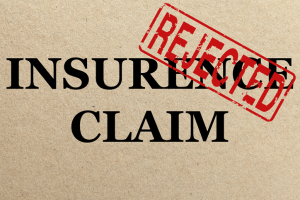When it comes to matters related to healthcare, knowledge is power. This includes understanding the health insurance options available to individuals to ensure they can receive the necessary care they need. One of the biggest programs in healthcare today is Medicare, which has specific eligibility criteria that must be met to enroll. This article will explain the details of when and how individuals can enroll in Medicare and what it entails.
What is Medicare?
Medicare is the national health insurance program that is managed by the Centers for Medicare and Medicaid Services (CMS), which is part of the U.S. Department of Health and Human Services. Medicare is primarily intended for people aged 65 and over. People who are disabled and certain other individuals may also qualify. The program helps to compensate for a significant portion of their medical expenses.
Medicare Part A is sometimes called hospital insurance. It helps to cover hospital stays, limited home healthcare, skilled nursing home costs, hospice care, and some types of care in facilities for long-term care, such as nursing homes. Medicare Part B is called medical insurance. It helps to cover services from doctors and preventative medicine, outpatient care, mental health, medical supplies, and other medical services. Part B coverage also pays for some of the cost of durable medical equipment and home healthcare services that are medically necessary. Medicare Part C also referred to as a Medicare Advantage plan, is a managed care plan that is provided through a private health plan, such as an HMO or PPO. This plan combines the benefits of Parts A and B and may offer additional coverage, such as vision and dental. Medicare Part D helps to cover prescription drug costs.
The cost of Medicare is divided between enrollees and the federal government. Most people who qualify for Medicare benefits receive premium-free coverage. Those who do not qualify for premium-free coverage may pay a monthly premium, depending on their income and resources. The Medicare program also offers extra coverage for those who need it, such as supplemental insurance and long-term care insurance.
When Can You Enroll in Medicare?
The general rule is that if you are over 65 and have been receiving Social Security benefits for at least four months, you are eligible to enroll in Medicare at any time. There are also certain other situations when enrollment into Medicare may be the right option.
People Under 65
Certain people are not yet 65 but are still eligible to enroll in Medicare Part A or Part B. These include those who have been receiving disability benefits for 24 months or more and those who have End Stage Renal Disease (ESRD). To enroll in either Part A or Part B of Medicare, you must first have applied and been approved for Social Security benefits and be aged 65 or older.
Individuals Who Are On Social Security Disability
If you have been receiving disability benefits from the Social Security Administration for 24 months or longer, you may be eligible to enroll in Part A and Part B. Once you are enrolled in either Part A or Part B, you can contact a Medicare agent or call 1-800-MEDICARE (1-800-633-4227) for more information about your eligibility.
Those Who Are Covered by Employer Health Plans
If you are covered by an employer health plan and are turning 65, you can delay enrollment in Part B of Medicare without a late-enrollment penalty. This means that you do not have to sign up for Part B of Medicare when you turn 65 if you are still covered by your employer's health plan. Once you would like to enroll in Medicare Part B, you will have to apply through the Social Security Administration.
People Who Retire or Lose Their Job After Turning 65
If you are a retiree who has not yet enrolled in Medicare Part B or a person who loses their job after turning 65, you have an eight-month Special Enrollment Period. This period begins before when you turn 65 and continues for the period in which you are unemployed or retired. During this special enrollment period, you can sign up for Part B without having to pay a late-enrollment penalty.
Individuals With End Stage Renal Disease (ESRD)
People with End Stage Renal Disease (ESRD) are eligible to enroll in Medicare Part A and Part B at any time as long as they have enrolled in Social Security disability benefits. There are also three months before the start of dialysis for ESRD when an individual can apply for Part A and Part B of Medicare. Individuals with ESRD can also choose to add Medicare Part C (Medicare Advantage) or a prescription drug plan (Medicare Part D).
Enrolling in Medicare
Enrolling in Medicare can be done in three different ways. You can apply at the Social Security Administration, by calling the toll-free telephone number 1-800-MEDICARE (1-800-633-4227), or by filling out an online application at Medicare.gov.
When you apply for Medicare, you will need to provide proof of your age, citizenship, or legal residency, as well as evidence that you have been receiving Social Security benefits for four months. In some cases, you may be asked for additional information such as a driver’s license, birth certificate, passport, or other proof of age.
Conclusion
It is important to understand when and how you can enroll in Medicare before you reach 65. Depending on your circumstances, you may be able to delay Part B enrollment or be eligible due to receiving disability benefits or having ESRD. Understanding the enrollment process and eligibility criteria is essential to make sure you are receiving the health coverage that is best for you.





















